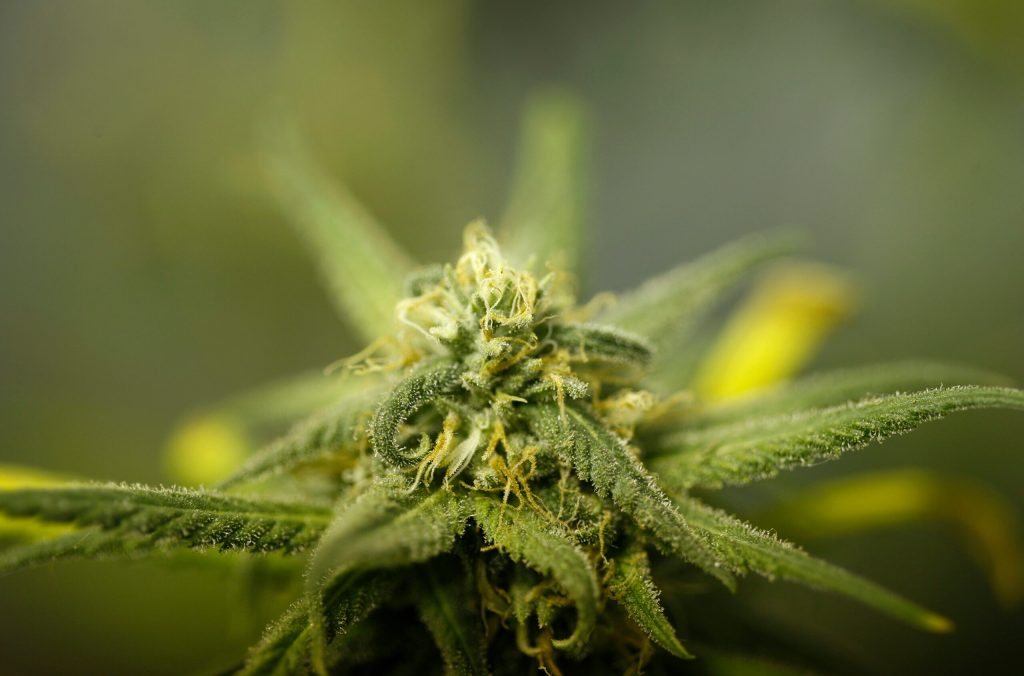
“There’s never been a paper bag for drugs.” Image via
Do you enjoy smoking a little weed? You should watch our TV show WEEDIQUETTE. It premieres Tuesday November 15th on our new channel, SBS VICELAND.
In season three of The Wire, the show’s beloved Major Colvin explains that selling alcohol in a paper bag was an important step for criminal justice. Previously, police were forced to arrest people for drinking in public. The paper bag meant police could focus on important crimes without losing face by “giving up” and changing the legislation. But, as Major Colvin pointed out, there’s never been a paper bag for drugs.
Videos by VICE
The Wire was released before the widespread rollout of medical marijuana in America. Essentially that’s what the policy became, a paper bag. Now, more or less anyone in California can get access to decriminalised “medical” weed. In Australia, recent changes to the law about medical marijuana have hemp enthusiasts hopeful that we will see a similar shift here. But medical marijuana—at least, in its current form—is not the paper bag we need.
Australians are the world’s heaviest weed smokers, so it makes sense that marijuana is a hot topic. But we’re also face rising illicit drug offences year on year. Ending the expensive, ineffective war on drugs will need more than limited medical research. Australia is a country ripe for an innovative, agile approach to drugs. Namely we’re ripe for the legalisation of recreational weed.
As in Colorado, complete legalisation could be an enormous force for economic development and social change, chipping away at Australia’s budget deficit. Research shows it could net the Australian government $300 million per year—and that’s just from the GST. An additional tax at the same rate as tobacco would yield a similar economic boost. Although there are legitimate concerns about negative impacts of legal or decriminalised ‘paper bag’ weed, they are hotly debated and not clearly supported by evidence.

Image via.
But Australia’s legislation is also a far cry from the “medical marijuana” we’ve seen in certain states of America, where doctors prescribe cannabis for certain indicated conditions. Doctors in Australia will not be able to prescribe cannabis or cannabis-derived products, at least until more legislation is passed at the state level to regulate the supply.
VICE was told by a spokesperson for Victorian Premier Daniel Andrews, this change at the federal level will allow the Victorian parliament to make medicinal cannabis legal for patients only “in exceptional circumstances.” The first group to receive some form of these drugs will be children suffering epilepsy when other treatments have been ineffective. These trials will begin in 2017, the spokesperson said.
Politicians may be grappling with that fact that weed is electoral dynamite, with more than 90 percent of voters support medical marijuana, and a third supporting recreational legalisation. But Australians shouldn’t be toking up in celebration, because make no mistake, the Federal Government remains committed to prosecuting recreational drug users.
Federal Health Minister Sussan Ley made this same point clear: “This is not a debate about legalisation of cannabis. This is not about drugs. This is not a product you smoke. This has nothing to do with that. Most commonly the product is an oil or a tincture that you put on your skin.”
Independent Senator Nick Xenophon also said this in support of the new laws: “This bill is not about the liberalisation of drug policy in Australia… In no way do I condone so-called recreational drug use.”
And Labor MP Melissa Parke: “This bill is the first step of many along the path to sensible and significant reform in this area… But the bill does not legalise the sale, possession, or use of cannabis…”
For patients who once had to illegally purchase cannabis products here, the legalisation of medical marijuana is most definitely a step in the right direction. Unfortunately, it seems the new legislation will not soften the approach of law enforcement.
As NSW Greens MP David Shoebridge said, “[the NSW Liberals] have stated that even if medicinal cannabis is allowed, this won’t change their zero-tolerance approach to taking people’s licences away if they are found driving with even the smallest trace of cannabis in their system.” This prompts the question: Will patients of chronic pain, who get relief from cannabis, be stripped of their driver’s licences?
The NSW Greens endorse an end to drug prohibition, but this position runs counter to the federal Greens party, who support decriminalisation but are keen to distance themselves from legalisation.
While the bill certainly does pave the road for new pharmaceuticals, the hype around “medical marijuana” is blown out of proportion, with edgy clickbait for excited recreational users.
Politicians are happy to take the votes of young progressives who support drug liberalisation while continuing their unjust approach to criminalising drug use. And if there’s one lesson to bring away from all this, it’s that it’s still worth buying that plane ticket to Denver.



